‘Please Please Me’: Remembering The Beatles’ Second Single
Released in January 1963, The Beatles’ ‘Please Please Me,’ was a transatlantic smash hit, but not quite as successful as many people now imagine.
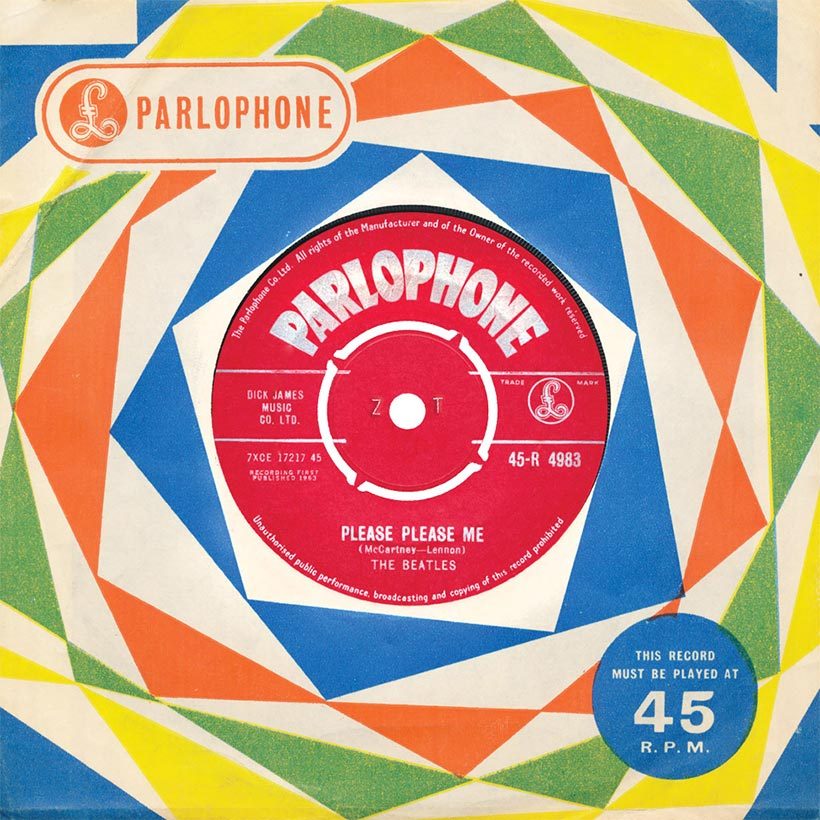
It’s one of those questions to which everyone is (pretty) sure they know the answer. What was The Beatles’ first No.1 on the official UK charts?
Just about everyone knows that “Love Me Do,” their first single, did OK on the charts, but didn’t reach the coveted top spot. So the answer has to be… “Please Please Me” recorded at the end of November 1962 and released as their second single on January 11, 1963. But the truth is, according to the Record Retailer magazine chart, “Please Please Me” only made No.2. What was the confusion about? Well, the good old BBC did place the song at No.1 on their chart, which was determined by an average of various UK charts published in the New Musical Express, Record Mirror, and other British pop papers.
It was on Monday, November 26, 1962, following a Sunday evening gig at Liverpool’s Cavern Club, that The Beatles headed to London to record “Please Please Me,” along with the B-side “Ask Me Why.” The next day, The Beatles were at the BBC’s Paris Studio, in London’s Lower Regent Street, for their first-ever London appearance on the UK’s national radio station. Released on January 11, “Please Please Me” charted a little over a week later, peaking at No. 2 in late February, where it stayed for two weeks and it made the No.2 slot again on March 16 for a single week.
In America, Capitol Records turned down the opportunity to release The Beatles’ first two singles, and so a deal was done with Vee-Jay, a US label whose main claim to fame was that they had The Four Seasons on their label. A few weeks before the impending arrival of The Beatles in New York to appear on Ed Sullivan’s Show in February 1964, Vee-Jay reissued “Please Please Me” with “From Me to You” on the B-side (having originally released “Please Please Me” in February 1963 that at the time did not perform well).
When The Beatles set foot on American soil, at New York’s John F. Kennedy International Airport on Friday, February 7, 1964, it marked the beginning of what has come to be called, “the British invasion.” The following morning The Beatles, minus George who was unwell, did a press photo-call in New York’s Central Park. After lunch, there were rehearsals for The Ed Sullivan Show, and the band’s road manager, Neil Aspinall, stood in for George at a TV camera call.
The Ed Sullivan Show was broadcast from Studio 50 on Broadway and West 53rd Street in Manhattan and The Beatles taped what became their third appearance on the show the following day. On The Beatles 1’s DVD and Blu-ray the clip of the band performing, “Please Please Me” is taken from the show that was transmitted on Sunday, February 23.
On the evening following the afternoon’s videotaped session, The Beatles performed live to a studio audience of 728 people. More significantly, the Sunday evening show was seen by 73 million Americans in over 23 million homes. It remains one of the most-watched broadcasts in TV history. Brian Epstein’s deal with the show resulted in The Beatles being seen on American TV on three consecutive Sunday nights – an unprecedented PR opportunity.
Their performance of “Please Please Me” was a significant reason behind the single peaking at No.3 on the week of March 21, 1964. Two weeks later “Please Please Me” was at No.5 on the charts, but in the four places above it were, “I Want To Hold Your Hand” at No.4, “She Loves You” at No.3, “Twist and Shout” at No.2 and “Can’t Buy Me Love” at No.1.
The Beatles 1s celebrates the group’s biggest songs and can be bought here.






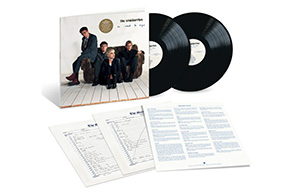

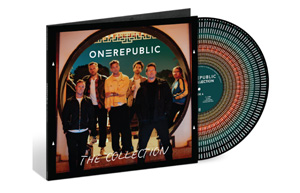



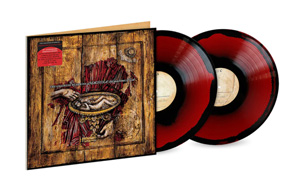
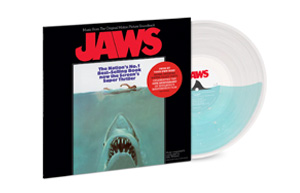
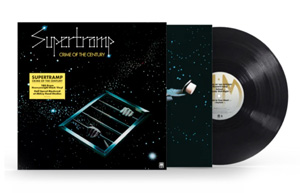
Dean Haas, Jr.
January 13, 2016 at 6:03 pm
I bought the single ‘She Loves You’ when it was released in America, on the Swan label, and the ‘Introducing The Beatles’ LP (Mono, no less) on VJ. It always made me upset that the records released in the U.K contained different songs than the American releases, such as Meet The Beatles on capitol.
Tom Purdue
January 13, 2016 at 6:45 pm
Capitol, having at first refused to release the Beatles’s material in America, then proceeded to carve up all their albums (up to and including Revolver) turning 14 track British releases into 12 or 11 track American ones, thereby short changing the American buyers by making about 9 albums from what were 6 albums in
Britain. The worst example was Revolver, where they took off 3 Lennon songs and put them on Yesterday and Today so Revolver was virtually devoid of Lennon’s songs.
Robin Ore
January 13, 2016 at 11:17 pm
For the historical record, there was no “official” UK chart until Feb 1969. The Record Retailer chart might be the “official” 60s chart of the UK Official Charts Co, but it was never the “official” chart of the UK, no way, no how. This is revisionist history decades after the fact. Of the other 3 charts, NME, Melody Maker, and Disc, they sampled a total of 270 record shops in 1963. They all said Please Please Me was # 1 for 2 weeks. The BBC had it # 1 for 3 weeks. Record Retailer sampled only 30 record shops, and claimed PPM peaked at #2. Who are you going to believe, 270 or 30? Not only that, Record Retailer was the least accurate of the 4 charts, had the most volatility, and frequently couldn’t get their weekly record shop tallies in on time. They made the same mistake with The Rolling Stones “19th Nervous Breakdown.” No, Record Retailer was not “official”, and they were the least reliable. Don’t take my word for it, look up UK record industry and chart expert Alan Smith’s article https://www.ukmix.org/forums/viewtopic.php?f=5&t=103263 and all will be revealed. Don’t believe the revisionist lie, people. Even The Beatles 1st UK LP and some EPs said PPM was #1. Why would a record company claim their artist had fewer #1 hits than they really did? Total rubbish. And oh yes, Strawberry Fields Forever also hit #1 for 3 weeks on the Melody Maker chart, the chart which sampled the most number of record shops at that time, around 250. And in the US, Twist & Shout, Nowhere Man, and For You Blue also hit #1 on the Cashbox and Record World charts. Thus The Beatles had 32 total #1’s in the UK and US. Put that in your pipe and smoke it…
Robert C
January 14, 2016 at 3:04 am
I had read various articles over the years making the same point as Robin did about judging the various charts. It’s hard to imagine now but there was a time before one, well-documented, authoritative source for this information was available.
James Percival
January 13, 2019 at 12:36 am
What a great source from Alan Smith. I remember reading a similar account from an industry insider that has now gone, but if this is Alan Smith of NME fame then it explains the level of insider expertise.
Mr Wee Wee
January 14, 2016 at 12:06 am
Mr. Wee Wee sez, “yOu gO girl” and “stand FIRM behind Barack!”
Adrian Thomas
January 14, 2016 at 12:47 am
Robin Ore, you are spot-on with all your points. I’ve been saying the same for years.
Let there be no doubt, in 1963 The Beatles ‘Please Please Me’ DID get to #1 in the UK!
Robin Ore
January 16, 2016 at 6:33 pm
Let me just add in, the Record Retailer chart IS a part of 60s UK chart history, but only 10% to 16% of it, not 100%. There are better/more accurate ways for the Official Charts Co to represent the 60s than using the RR chart: use the NME chart, the Melody Maker chart, the BBC average chart, or use any of those 3 and fill out the missing positions 31-50 (when they are missing) with the RR chart (adjusting for duplicates). Or do a flat out recalculation of the 520 weekly charts and weight them by the approx. number of record shops each of the 4 charts sampled, per Alan Smith’s article. Any of these options is way more historically accurate than using Record Retailer, the least representative and least accurate chart of the 60s. Now go play and be nice…
uDiscover
January 11, 2017 at 12:25 pm
As has also been well documented over the years, the charts in some of the pop papers were falsified… It’s a minefield, but The Record Retailer chart is what is accepted as the best source. Whatever the arguments, it’s a great record.
James Percival
January 13, 2019 at 12:39 am
Which might well be true, but the accounts of the various chart compilers doesn’t suggest that RR was more honest / accurate than the others. The real mystery to me is why Apple didn’t challenge this false history when the album 1 was released in 1999. This was their opportunity and they didn’t take it.
James Percival
January 13, 2019 at 12:26 am
Robin Ore might have been a little strong in his phraseology but he is absolutely right, this is a form of historical revisionism and it should be challenged. Incidentally, the main reason that Tim Rice et al working for the first version of the Guinness chart book in 1977 solely used the Record Retailer chart, other than convenience, was because this chart had ran to a top 50 and so more entries could be included.
The first publication that I know of finally collated Beatles singles in all the charts was the redoubtable Lewisohn in the Beatles Chronicle (1992, p351). Please Please Me was number 1 in Disc, Melody Maker, New Musical Express (which was viewed as the most authoritative in the early 60s), Record Mirror and the BBC amalgamation. Only in the Record Retailer chart was it number 2.
Put yourself in the place of the Beatles in early 1963. Your record is at the top of virtually all the charts, including the BBC. there is no official chart. You think to yourself – ‘we have a number 1 record!’. To claim 15 years later that this wasn’t a number 1 is inaccurate and a form of revisionism
R Cataliotti
January 13, 2021 at 1:27 pm
VeeJay Records is not just notable for having the Four Seasons on their roster. It was one of the few African American-owned labels and featured great artists like Jimmy Reed and John Lee Hooker.
Daniel Achille
March 16, 2023 at 3:28 pm
Love me do did get to number one in the US in 1964 so you could say it’s the earliest single to reach number one, although it took a while to do so. And I know it was in the US and not Britain.